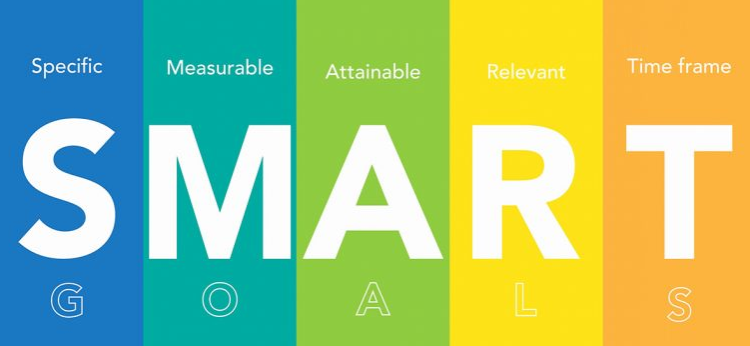The central topic of the training named “defining personal goals” is the creation of so-called S.M.A.R.T. goals. Let’s take a look what this actually means!
Defining the proper goals is indispensable for advancement. We become successful, and manage to stay motivated to reach our goals only if the goal we set for ourselves is truly important, and in concert with our values. If we’re properly motivated in reaching our goals, our self-efficiency, performance will improve as well. Choosing the proper goal will bring us closer to our life goals and dreams. But what will make a goal proper? In order to set the proper goals, we can use the method of S.M.A.R.T. goal defining. This system is used on various areas (marketing, psychology, etc.), due to it being simple, transparent and easy to achieve. But what is smart goal defining?
- Specific: the goal needs to be specific, simple, concrete. It’s important that it shouldn’t be a too simple goal, and should match us and our lives. There’s merit in finding answers to fundamental questions, such as what we wish to do, why we wish to achieve it, where we wish to do so, how and when I wish to reach it, etc.
- Measurable: it’s important to affix a measurement indicator to our goals, by which we can decide if we succeeded in reaching the goal or not.
- Attractive: offers a challenge. Proper goals are ones where we need to exert ourselves to reach them. Too easy goals, or goals which are already achieved offer no motivation, and by extension, no feeling of success.
- Realistic: resources necessary for the goal need to be present, or possible to acquire. Apart from this, another important perspective is how relevant the goal is, how important it is for us, how worthy it is for our time, and how appropriate time, place and occasion are.
- Time-bound: plannable, you can set a timetable for it. It’s important for the goal to have a starting and final deadline, between which steps, partial goals, milestones can also be determined.
When defining goals, it’s important to always word our goals positively, and concentrate how we can make our lives better, nicer, happier, more successful. Therefore, we need to avoid descriptions with negative content: we shouldn’t aim to avoid what we don’t want to do in the future, but aim to reach what we do want to.

